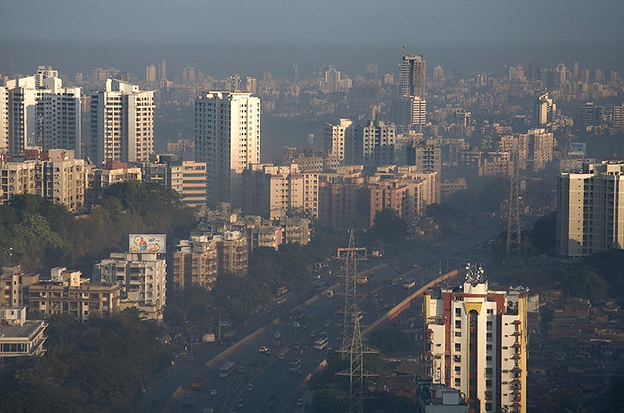In a virtual public consultation organised yesterday, on March 2, environmental groups, members of civil society, activists and officials from the Maharashtra environment department came together to develop detailed recommendations to improve deteriorating air quality in the state.
With over 0.1 million deaths in 2017 and 2019, Maharashtra has recorded the second-highest number of deaths due to air pollution in the country. Major contributors to air pollution in the state are vehicular and industrial emission (including thermal power plants), construction dust and solid fuel emissions.
During the virtual town hall (meeting), the topics discussed included air pollutant source-specific strategies through policy support for pollution control systems in industry, promoting district-specific policies for less/non-polluting industries, installation of pollution control systems in thermal power plants and utilising renewable energy potential.
There was also talk about providing incentives to shift to electric vehicles, promoting public transport, cycling and carpooling, encouraging pedestrians and greening cities to tackle heat and dust.
“These recommendations will be submitted to Maharashtra chief minister Uddhav Thackeray and state environment minister Aaditya Thackeray on June 5 (World Environment Day). The policymakers will attempt to implement as many of these recommendations as possible to shape the state’s climate action plan,” Manisha Mhaiskar, principal secretary, environment and climate change department, Maharashtra, said at the town hall.
“The environment minister and all of us at the ministry recognise that this decade [2021-2030] is possibly the last for positive climate action, which can help slow down the impact of climate change. It may be too late 10 years from now. This is why the government launched a 360-degree campaign Majhi Vasundhara, engaging cities across the state, from Mumbai, Pune and Nagpur to villages in Vidarbha,” Mhaiskar added.
The town hall on air pollution was organised by Climate Voices, a collective of three organisations — Purpose, Asar and Climate Trends along with the Majhi Vasundhara initiative. It was hosted by Waatavaran Foundation, a not-for-profit that works on issues of climate change, environment and sustainability, and Centre for Science and Environment (CSE), a New Delhi-based not-for-profit public interest research and advocacy organisation.
The state government is pushing for usage of electric vehicles. “We will soon have a detailed electric vehicle policy for the entire state. Currently, we have nominated Thane as a model city for promoting electric vehicles,” VM Motghare, joint director (air quality), Maharashtra Pollution Control Board, said during the meeting.
“#Maharashtra will soon have a detailed #ElectricVehicle (EV) policy. Also #Thane has been nominated as a model town for EVs.”
— Waatavaran (@waatavaran) March 2, 2021
— Dr. V. M. Motghare, Joint Director, Air, MPCB#MahaClimateVoices #MajhiVasundhara @AUThackeray pic.twitter.com/CZNBLWg27I
Under the National Clean Air Action Plan (NCAP), Maharashtra has the highest number of non-attainment cities (cities that continue to witness poor air quality over a five-year period, failing to meet national air quality standards) in India. Eighteen cities have been identified by the Central Pollution Control Board (CPCB) to reduce air pollution by 20-30 per cent by 2024, taking levels in 2017 as the base year.
In Maharashtra, Mumbai, Thane, Navi Mumbai, Nashik, Pune, Nagpur, Chandrapur and Aurangabad are a few of the cities listed as non-attainment. The latest to be added is the Vasai Virar Municipal Corporation.
Like most Indian cities in winter, pollution levels for all non-attainment cities in Maharashtra in December 2020 were above 40 µg/m3, the acceptable PM2.5 standards for Central Pollution Control Board (CPCB). As per the World Health Organization (WHO), the safe limit for clean air is 10 µg/m3.
Impact on health
As per WHO, exposure to high levels of air pollution can cause a variety of adverse health outcomes. It increases the risk of respiratory infections, heart disease and lung cancer. It has a more severe impact on those already unwell. Children, the elderly and the poor are more susceptible.
“Our study showed ‘Respiratory System’ is the worst affected health problem (due to #airpollution) across all age groups due to which people have to see a doctor.”
— Waatavaran (@waatavaran) March 2, 2021
– Dr. Sundeep Salvi, @PulmocareF #MahaClimateVoices #MajhiVasundhara @AUThackeray @icareforlungs pic.twitter.com/GmLSMwB1Hj
Expressing concern over the increasing health impact of air pollution, Sundeep Salvi, director, Pulmocare Research and Education (PURE) Foundation, an organisation based in Pune that works in respiratory research, education and advocacy, said: “Our study with Lancet Planetary Health showed that respiratory system-related problems across all age categories formed the maximum share of health burden for doctor consultations. Indoor air pollution is also a neglected area,” he added.
Experts also discussed the health impact of air pollution among auto and cab drivers across the state.
Collective effort need of the hour
Experts believe clean air is not just the responsibility of the government or an organisation, but also of individuals, as air pollution is a collective challenge.
“None of the action plans will be possible without public support. Hyperlocal action at neighbourhood scale will be needed to build awareness,” said Anumita Roy Chowdhury, executive director (Research and Advocacy), Centre for Science and Environment (CSE) at the town hall.
“None of the action plans will be possible without public support”
— Waatavaran (@waatavaran) March 2, 2021
– @AnumitaRoychowd, @CSEINDIA, as she shares her 10-point recommendation list for #cleanair.#MahaClimateVoices #MajhiVasundhara @AUThackeray pic.twitter.com/LnjaKjeR1o
“Citizen science, transparent and accessible data, demystifying science and disseminating health information will be very crucial. Citizens network should include all changemakers and vulnerable groups so they can connect with the problems and solutions,” Chowdhury added.
Watch the town hall on Air Pollution here.


















